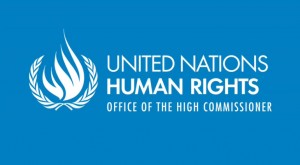Report of the UN Special Rapporteur on the right to health

Dr Dainius Puras, the UN Special Rapporteur on the right of everyone to the enjoyment of the highest attainable standard of physical and mental health, has published a report that will shortly be tabled to the UN General Assembly. It contains a section on intersex children:
Intersex children
84. “Intersex” refers mainly to physical aspects of the body and includes a wide range of natural body variations that do not conform to prevailing notions of male and female bodies.54 Deeply rooted stereotypes around gender dichotomy and medical norms about male and female bodies have led to the establishment of a medical practice of routine interventions and surgeries on intersex people, including irreversible genital surgery and sterilization. These interventions are not always necessary on medical grounds and are often not performed with the informed consent of the persons concerned. Moreover, medical classifications currently codify intersex characteristics as pathologies or disorders.55
85. These practices, if performed without due consideration for the best interests and evolving capacities of young children, can have detrimental, long-lasting effects on their health and well-being; violate their basic rights to physical integrity, privacy and autonomy; and may amount to ill-treatment or even torture.56 In addition, the sex assigned at birth becomes a legal and social factor, often permanent or difficult to change, that will determine the life and development of the child and affect his/her right to develop a personal identity.
86. On the basis of international human right law and standards,57 States should prohibit unnecessary medical or surgical treatment during infancy or early childhood in order to guarantee the bodily integrity, autonomy and self- determination of the children concerned.
The Special Rapporteur makes the following clear and unambiguous, specific recommendation to governments:
(m) To prohibit discrimination against intersex people, including by banning unnecessary medical or surgical treatment, and adopt measures to overcome discriminatory attitudes and practices through awareness-raising, training for public officials and medical professionals and the elaboration of ethical and professional standards that respect the rights of intersex persons, in consultation with intersex people and their organizations;
The report, A/70/213, is dated 30 July 2015, before the participation of the Special Rapporteur in September’s expert meeting on intersex, organised by the UN Office of the High Commissioner for Human Rights.
We warmly welcome this report. It contains some extremely helpful language, including recognition that current medical classifications of intersex characteristics can be inappropriate. It also calls for consultation with intersex people and our organisations.
You must be logged in to post a comment.